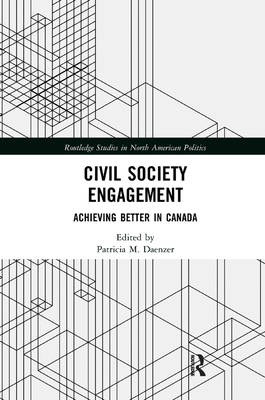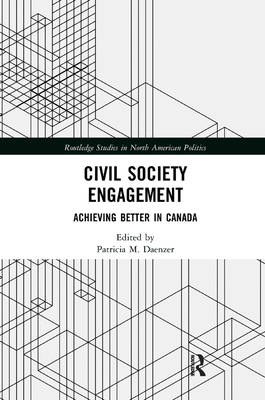
- Retrait gratuit dans votre magasin Club
- 7.000.000 titres dans notre catalogue
- Payer en toute sécurité
- Toujours un magasin près de chez vous
- Retrait gratuit dans votre magasin Club
- 7.000.000 titres dans notre catalogue
- Payer en toute sécurité
- Toujours un magasin près de chez vous
Civil Society Engagement
Achieving Better in Canada
Description
Civil Society Engagement: Achieving Better in Canada examines the process and outcomes of a particular series of civil society activism and establishes a conceptual framework through an examination of Canadian politics and societal change.
Relying on qualitative and ethnographic research, document analysis and reviews of policies, the contributions focus on social possibilities, legal limits and societal roles to illuminate the national asset of human solidarity evident in civil society activism in Canada. Patricia Daenzer and her expert contributors challenge the romanticism of 'the perfected welfare democracy' and contend that civil society activism leads to the authentication of democracy. The premise is that Canadian political and policy inconsistencies fail to protect some and civil society intervention is essential for the realignment and redefinition of articulated national principles and redistributive outcomes. Although Canada is shown ultimately to be guarded in its welfare commitment, this 'guarded' progress in welfare democracy would not be possible without the activism of segments of civil society.
Civil Society Engagement: Achieving Better in Canada demystifies civil society activism and urges greater awareness of current social dynamics and involvement in the lives of the most disadvantaged. Not only are new immigrants and refugees voicing for inclusion, but the very definition of persons with rights has evolved through civil society activism. This book will lead to deliberations about state legal frameworks which impact civil society reach, the purpose and scope of Canadian politics and the potential of civil society in perfecting our democracy.
Spécifications
Parties prenantes
- Editeur:
Contenu
- Nombre de pages :
- 200
- Langue:
- Anglais
- Collection :
Caractéristiques
- EAN:
- 9780367372002
- Date de parution :
- 16-07-19
- Format:
- Livre broché
- Format numérique:
- Trade paperback (VS)
- Dimensions :
- 152 mm x 229 mm
- Poids :
- 399 g






